Home>Articles>How Much Does It Cost To Replace Fuse Box With Circuit Breakers
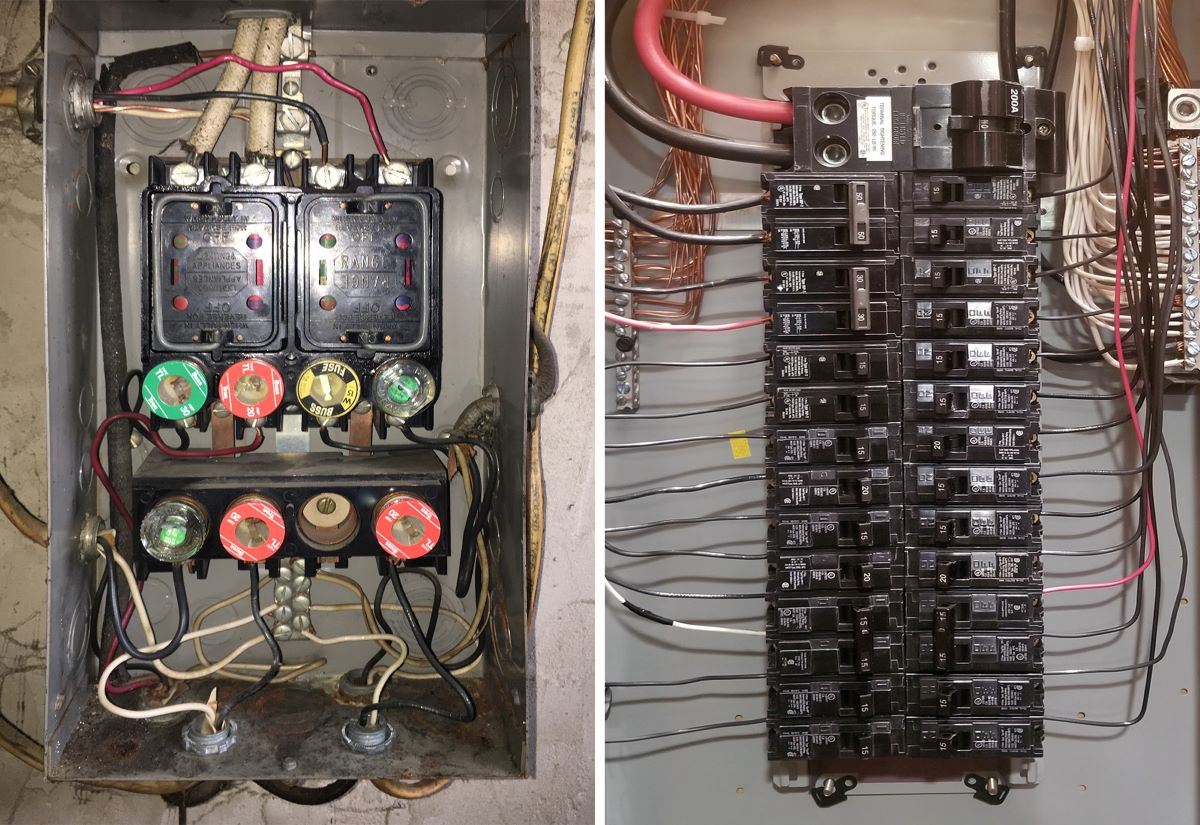

Articles
How Much Does It Cost To Replace Fuse Box With Circuit Breakers
Modified: August 27, 2024
Get the latest articles on the cost of replacing a fuse box with circuit breakers and learn more about this electrical upgrade.
(Many of the links in this article redirect to a specific reviewed product. Your purchase of these products through affiliate links helps to generate commission for Storables.com, at no extra cost. Learn more)
Introduction
In every home, the electrical system is a crucial component that ensures the smooth functioning of various appliances and devices. It consists of a fuse box or a circuit breaker panel which controls and distributes electricity throughout the house. Over time, the technology surrounding electrical systems has evolved, leading to the emergence of circuit breakers as a safer and more efficient alternative to traditional fuse boxes.
In this article, we will explore the cost implications of replacing a fuse box with circuit breakers. We will delve into the importance of this upgrade and discuss the factors that can influence the overall cost. By understanding the benefits of circuit breakers and considering the necessary steps before making the transition, you can ensure the safety and efficiency of your electrical system.
Key Takeaways:
- Upgrading from a fuse box to circuit breakers offers advanced safety features, improved functionality, and potential long-term cost savings. It’s a worthwhile investment for the safety and efficiency of your electrical system.
- Factors such as the size of the electrical system, number of circuits, accessibility, and local labor costs should be considered when estimating the cost of replacing a fuse box with circuit breakers. Consulting with licensed electricians is crucial for accurate cost estimation.
Importance of Replacing Fuse Box with Circuit Breakers
The fuse box, also known as a fuse panel, is responsible for protecting your home’s electrical circuits from overload or short circuits. It contains several fuses that are designed to blow and interrupt the electrical current when they detect a fault. While fuse boxes have served us well for many decades, they come with some limitations.
Firstly, when a fuse blows, it needs to be replaced manually. This can be a hassle, especially during inconvenient times or in hard-to-reach areas. Additionally, not everyone is familiar with how to properly replace a blown fuse, leading to potential safety hazards.
Circuit breakers, on the other hand, offer a more advanced and efficient solution. They automatically detect faults in the electrical system and trip the circuit, cutting off power to the affected area. Once the issue is resolved, circuit breakers can be easily reset with the flip of a switch. This eliminates the need for constant fuse replacement and allows for a quicker restoration of power.
Furthermore, circuit breakers provide enhanced electrical safety. They have built-in safety features such as grounding and arc fault detection, which can help prevent electrical fires and electrical shock. By upgrading to circuit breakers, you can significantly reduce the risk of electrical accidents and ensure the protection of your home and loved ones.
Aside from safety benefits, circuit breakers also offer improved functionality. Unlike fuse boxes, circuit breakers provide the ability to individually control the flow of electricity to different circuits in your home. This allows for easier troubleshooting and maintenance, as well as the flexibility to add new electrical devices without overloading the system.
Next, we will explore the factors that can affect the cost of replacing a fuse box with circuit breakers. By understanding these factors, you can better estimate the overall expense and plan accordingly for this important upgrade.
Understanding Fuse Boxes and Circuit Breakers
In order to understand the cost implications of replacing a fuse box with circuit breakers, it is important to have a clear understanding of how fuse boxes and circuit breakers function, as well as the differences between the two.
A fuse box is a metal box that contains multiple electrical fuses. These fuses are designed to protect the electrical circuits in your home by blowing, thus interrupting the flow of electricity, when a fault or overload is detected. When a fuse blows, it needs to be manually replaced with a new fuse of the appropriate rating.
Circuit breakers, on the other hand, are electrical switches that automatically trip and cut off the flow of electricity when a fault or overload occurs. They consist of a switch mechanism and a magnetic or thermal trip unit that detects abnormal electrical conditions. Once the issue is resolved, circuit breakers can be easily reset by flipping the switch.
One of the main differences between fuse boxes and circuit breakers is how they respond to faults. When a fault occurs in a fuse box, the fuse must be replaced. This can be inconvenient and time-consuming, especially if the fuse box is located in a hard-to-reach area. Circuit breakers, on the other hand, can be reset without the need for fuse replacement, resulting in quicker restoration of power.
Additionally, circuit breakers provide improved safety features compared to fuse boxes. They have built-in mechanisms to detect and protect against ground faults, short circuits, and arc faults. Ground faults occur when electricity flows through a path other than the intended circuit, while short circuits occur when there is a direct connection between the hot wire and the neutral wire. Arc faults, on the other hand, happen when there is an electrical discharge or spark between two conductors.
These safety features make circuit breakers more reliable in preventing electrical fires and electrical shock hazards. Fuse boxes, on the other hand, do not have these built-in safety features and may not offer the same level of protection.
Due to their convenience, safety features, and improved functionality, circuit breakers are preferred over fuse boxes in most modern electrical installations. While the initial cost of installing circuit breakers may be higher, the long-term benefits and peace of mind they provide make them a worthwhile investment.
Now that we have a better understanding of fuse boxes and circuit breakers, let’s explore the factors that can affect the cost of replacing a fuse box with circuit breakers.
Factors Affecting the Cost of Replacing a Fuse Box with Circuit Breakers
When considering the cost of replacing a fuse box with circuit breakers, several factors come into play. It’s essential to take these factors into account in order to understand the overall expense of the upgrade and plan accordingly.
1. Size and Complexity of the Electrical System
The size and complexity of your electrical system will significantly impact the cost of replacing a fuse box with circuit breakers. Larger homes or commercial properties with more extensive electrical systems will require a higher number of circuit breakers and potentially more labor to install them. Therefore, the overall cost will be higher for properties with more complex electrical systems.
2. Number of Circuits in the Fuse Box
The number of circuits in the existing fuse box will also affect the cost. Each circuit in the fuse box will require a corresponding circuit breaker in the new panel. If there are a significant number of circuits, it will require more circuit breakers, additional wiring, and potentially more labor to complete the replacement. This can increase the overall cost of the project.
3. Accessibility and Location of the Existing Fuse Box
The accessibility and location of the existing fuse box can impact the cost of the replacement. If the fuse box is located in a hard-to-reach area, it might require additional time and effort for the electrician to access and work on it. This can result in increased labor costs. On the other hand, if the fuse box is easily accessible, it can potentially reduce the overall cost of the replacement.
4. Local Labor and Material Costs
The cost of labor and materials can vary depending on your location. Labor rates can differ from one area to another, impacting the overall cost of the replacement. Additionally, the cost of circuit breakers and other necessary materials can vary based on the region and availability. It’s important to research local prices and consult with professional electricians to get a better understanding of the cost in your specific area.
By considering these factors, you can better estimate the cost of replacing a fuse box with circuit breakers and make informed decisions. However, it’s essential to obtain quotes from licensed electricians who can assess your specific situation and provide an accurate cost estimation.
Now that we have explored the factors that can affect the cost, let’s move on to estimating the overall expense of replacing a fuse box with circuit breakers.
Estimating the Cost of Replacing a Fuse Box with Circuit Breakers
Replacing a fuse box with circuit breakers is a significant electrical upgrade that requires careful consideration of the costs involved. To help you estimate the overall expense, here is a breakdown of the costs, including hiring a professional electrician, materials and equipment required, and additional expenses to consider.
1. Hiring a Professional Electrician
It’s crucial to hire a licensed and experienced electrician to handle the replacement of your fuse box with circuit breakers. The cost of hiring a professional electrician can vary depending on factors such as their expertise, location, and the complexity of the project. Electricians typically charge an hourly rate or a flat fee for the entire project. Obtaining multiple quotes from different electricians will help you get a better idea of the potential cost involved.
2. Materials and Equipment Required
The materials and equipment required for the replacement will contribute to the overall cost. This includes the circuit breaker panel, circuit breakers themselves, wiring, connectors, and any additional accessories needed for the installation. The cost of these materials can vary based on quality, brand, and quantity required. It’s advisable to consult with the electrician to determine the appropriate materials and ensure their compatibility with your electrical system.
3. Additional Expenses to Consider
There may be additional expenses to consider when estimating the total cost of replacing a fuse box with circuit breakers. These additional expenses can include:
– Permit Fees: Some jurisdictions require permits for electrical upgrades. The cost of these permits will vary depending on your location.
– Panel Upgrade: In some cases, the existing electrical panel may need to be upgraded to accommodate the new circuit breaker panel. This can involve additional labor and materials, adding to the overall cost.
– Electrical System Evaluation: It is recommended to have a thorough evaluation of your electrical system before the upgrade. An electrician may need to assess the overall condition and safety of the wiring, which could result in additional costs if repairs or replacements are necessary.
– Cleanup and Restoration: After the installation, there may be a need for cleanup and restoration of the area where the old fuse box was located. This could involve patching walls, repainting, or other cosmetic work.
Considering these additional expenses will ensure that you have a more accurate estimation of the total cost involved in replacing your fuse box with circuit breakers.
By thoroughly understanding the breakdown of costs involved, hiring a professional electrician, considering the materials and equipment required, and factoring in additional expenses, you can make a more informed decision when planning and budgeting for this essential electrical upgrade.
Next, we will explore the benefits of upgrading to circuit breakers over fuse boxes.
Benefits of Upgrading to Circuit Breakers
Upgrading from a fuse box to circuit breakers offers numerous benefits for the safety, functionality, and long-term cost-effectiveness of your electrical system. Let’s explore these benefits in detail:
Read more: What Replaces ITE Breakers
1. Improved Safety Features
Circuit breakers are equipped with advanced safety features that help protect your home from electrical hazards. They have mechanisms to detect and trip the circuits in the event of electrical faults such as short circuits, ground faults, or arc faults. This helps prevent electrical fires, property damage, and potential injuries due to electrical shock. Fuse boxes, in contrast, lack these built-in safety features, increasing the risk of electrical accidents.
2. Enhanced Electrical System Functionality
Replacing a fuse box with circuit breakers grants you greater control and flexibility over your electrical system. Circuit breakers allow for individual circuit monitoring and adjustable current ratings. This means that if a fault occurs in one circuit, it can be isolated and easily reset without disrupting power to the rest of the house. With circuit breakers, you can also add new electrical devices or appliances without overloading the system, as you can adjust the current rating as needed.
3. Potential Cost Savings in the Long Run
While the initial cost of upgrading to circuit breakers may be higher than replacing fuses, there can be significant cost savings in the long run. Fuse replacement can become a repetitive expense, especially if you experience frequent electrical faults or overloads. Circuit breakers, however, do not require manual replacement and can be easily reset, saving you time and money on fuse replacements. Additionally, the improved functionality of circuit breakers allows for better troubleshooting and reduced maintenance costs over time.
Beyond these primary benefits, upgrading to circuit breakers can also lead to increased property value and insurance benefits. Many insurance companies consider circuit breakers to be a safer alternative to fuse boxes, which may result in lower insurance premiums. Moreover, having an updated and reliable electrical system can enhance the overall value and marketability of your home.
Before making the decision to upgrade, it’s important to assess the condition of your existing electrical system and consult with a licensed electrician. They can evaluate your specific needs, provide expert advice, and ensure that the installation meets the necessary safety standards and code requirements.
By upgrading to circuit breakers, you can enjoy improved safety, enhanced functionality, and potential long-term cost savings. Now let’s discuss some essential considerations to keep in mind before replacing your fuse box with circuit breakers.
Considerations Before Replacing a Fuse Box with Circuit Breakers
Before embarking on the task of replacing a fuse box with circuit breakers, there are several important considerations to keep in mind. These considerations will help ensure a successful and safe transition to the updated electrical system. Let’s explore these considerations in detail:
Read more: How To Replace Pushmatic Circuit Breakers
1. Assessing the Condition of the Existing Electrical System
Before proceeding with the replacement, it is crucial to assess the condition of your existing electrical system. An evaluation will help identify any potential underlying issues, such as outdated or faulty wiring, overloaded circuits, or inadequate grounding. Addressing these issues prior to the replacement can prevent future problems and ensure the overall safety and functionality of your electrical system.
2. Consulting with a Licensed Electrician
It is highly recommended to consult with a licensed electrician before replacing a fuse box with circuit breakers. An experienced electrician will assess your specific electrical needs, evaluate the feasibility of the replacement, and provide expert guidance throughout the process. They can help you determine the appropriate size and type of circuit breaker panel, ensure proper wiring connections, and verify that the installation adheres to local electrical codes and safety regulations.
3. Obtaining Necessary Permits and Approvals
Electrical upgrades of this nature typically require permits and approvals, depending on your location. It is vital to check with your local building authority or municipality to understand the specific requirements before proceeding with the replacement. Obtain the necessary permits and ensure that the installation is done by a licensed electrician who can provide the documentation required for inspections and approvals. Compliance with local regulations will help ensure the safety and legality of the upgrade.
By considering these important factors, you can ensure a smooth and compliant transition from a fuse box to circuit breakers. Consulting with a licensed electrician will help address any concerns, perform necessary evaluations, and guide you through the entire process. Their expertise and knowledge will give you peace of mind, knowing that the replacement is done safely and professionally.
Now that we have discussed these key considerations, let’s conclude with a recap of the importance of replacing a fuse box with circuit breakers and some final thoughts on the cost implications.
Conclusion
Upgrading from a fuse box to circuit breakers is a wise investment for the safety, functionality, and long-term cost savings of your electrical system. By replacing outdated fuse boxes, you can enjoy enhanced safety features, improved electrical system functionality, and potential savings in the long run. Before proceeding with the replacement, it is important to assess the condition of your existing electrical system, consult with a licensed electrician, and obtain any necessary permits and approvals.
Throughout this article, we have highlighted the importance of upgrading to circuit breakers over fuse boxes. Circuit breakers offer advanced safety features that can help prevent electrical hazards, such as electrical fires and electrical shocks. They also provide greater control and flexibility over your electrical system, allowing for individual circuit monitoring and adjustable current ratings. And while the initial cost may be higher, the potential cost savings in the long run, along with the added convenience and enhanced functionality, make it a worthwhile investment.
When estimating the costs of replacing a fuse box with circuit breakers, several factors should be considered. These include the size and complexity of the electrical system, the number of circuits in the fuse box, the accessibility and location of the existing fuse box, as well as local labor and material costs. By understanding these factors and obtaining quotes from licensed electricians, you can better plan and budget for the replacement project.
Remember to assess the condition of your existing electrical system, consult with a licensed electrician, and obtain any necessary permits and approvals before proceeding with the replacement. This will ensure that the upgrade is done safely, efficiently, and in compliance with local regulations.
In conclusion, replacing a fuse box with circuit breakers is a crucial electrical upgrade that can provide numerous benefits for your home or property. From enhanced safety to improved functionality, the transition to circuit breakers offers long-term advantages. By considering the importance of this upgrade and carefully evaluating the cost implications, you can make an informed decision that promotes the safety and efficiency of your electrical system.
Frequently Asked Questions about How Much Does It Cost To Replace Fuse Box With Circuit Breakers
Was this page helpful?
At Storables.com, we guarantee accurate and reliable information. Our content, validated by Expert Board Contributors, is crafted following stringent Editorial Policies. We're committed to providing you with well-researched, expert-backed insights for all your informational needs.
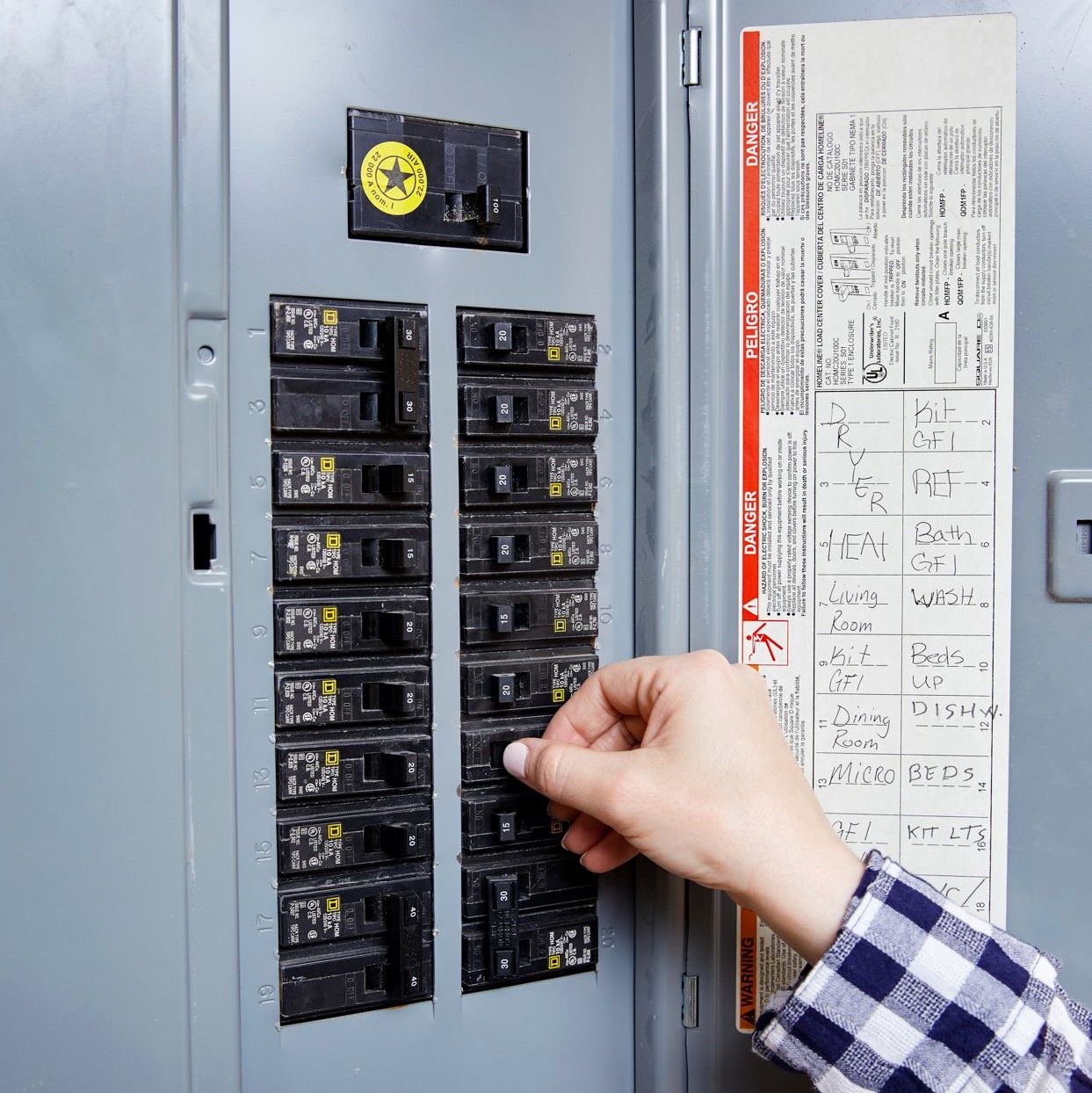
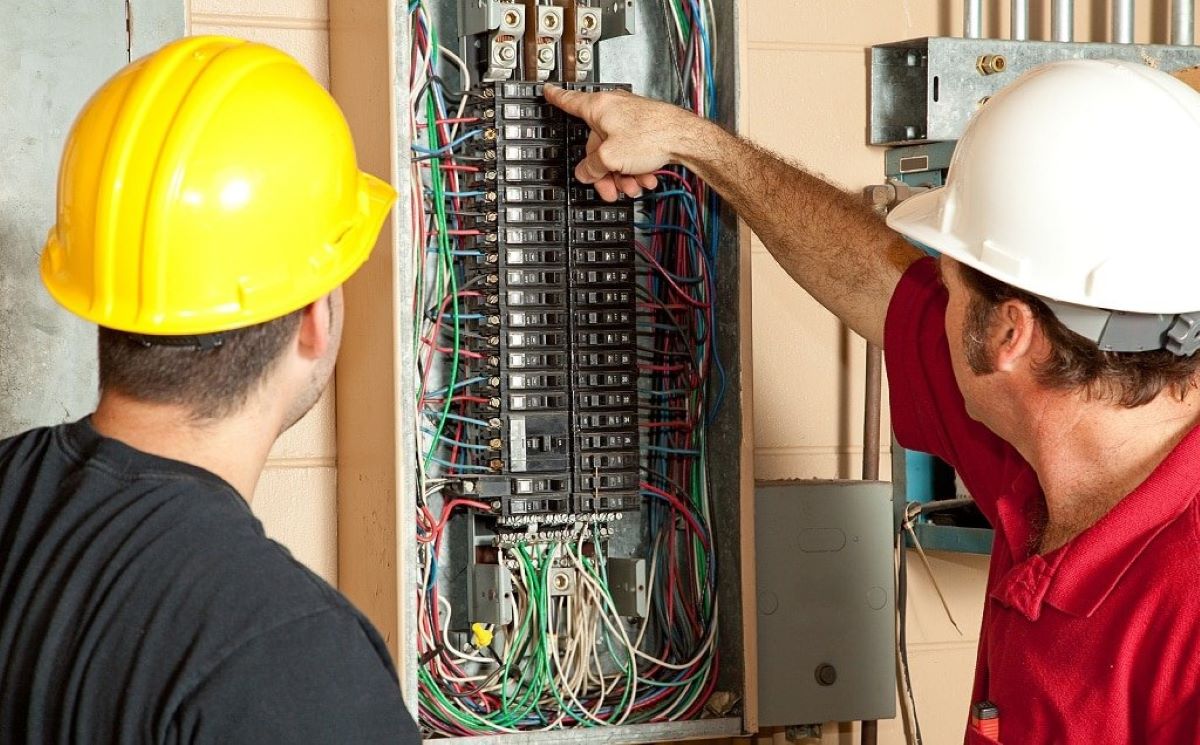
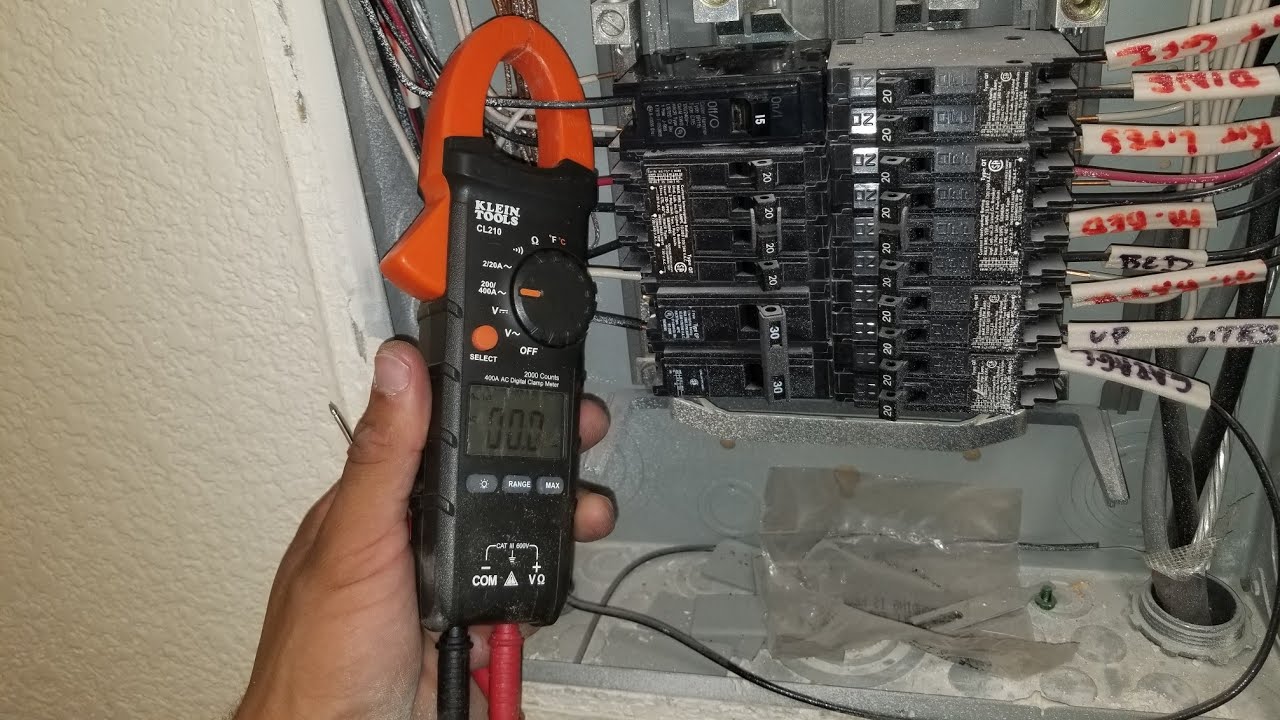


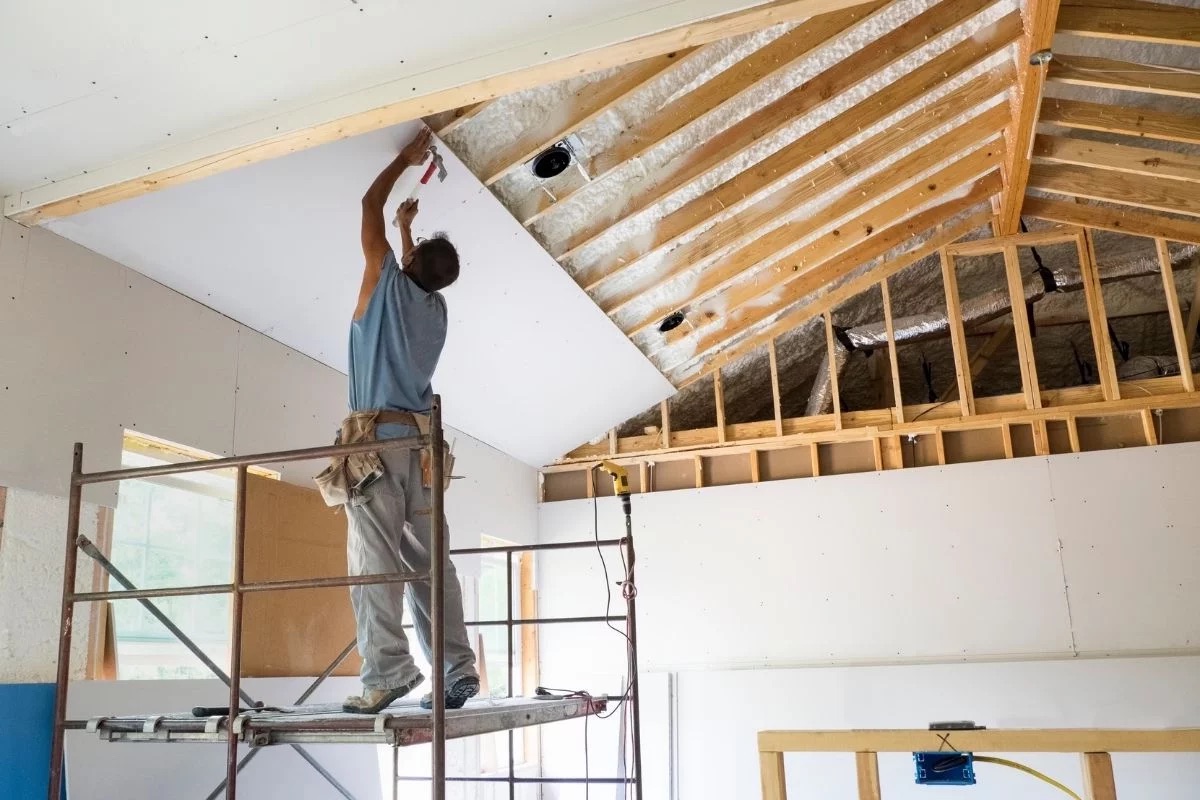

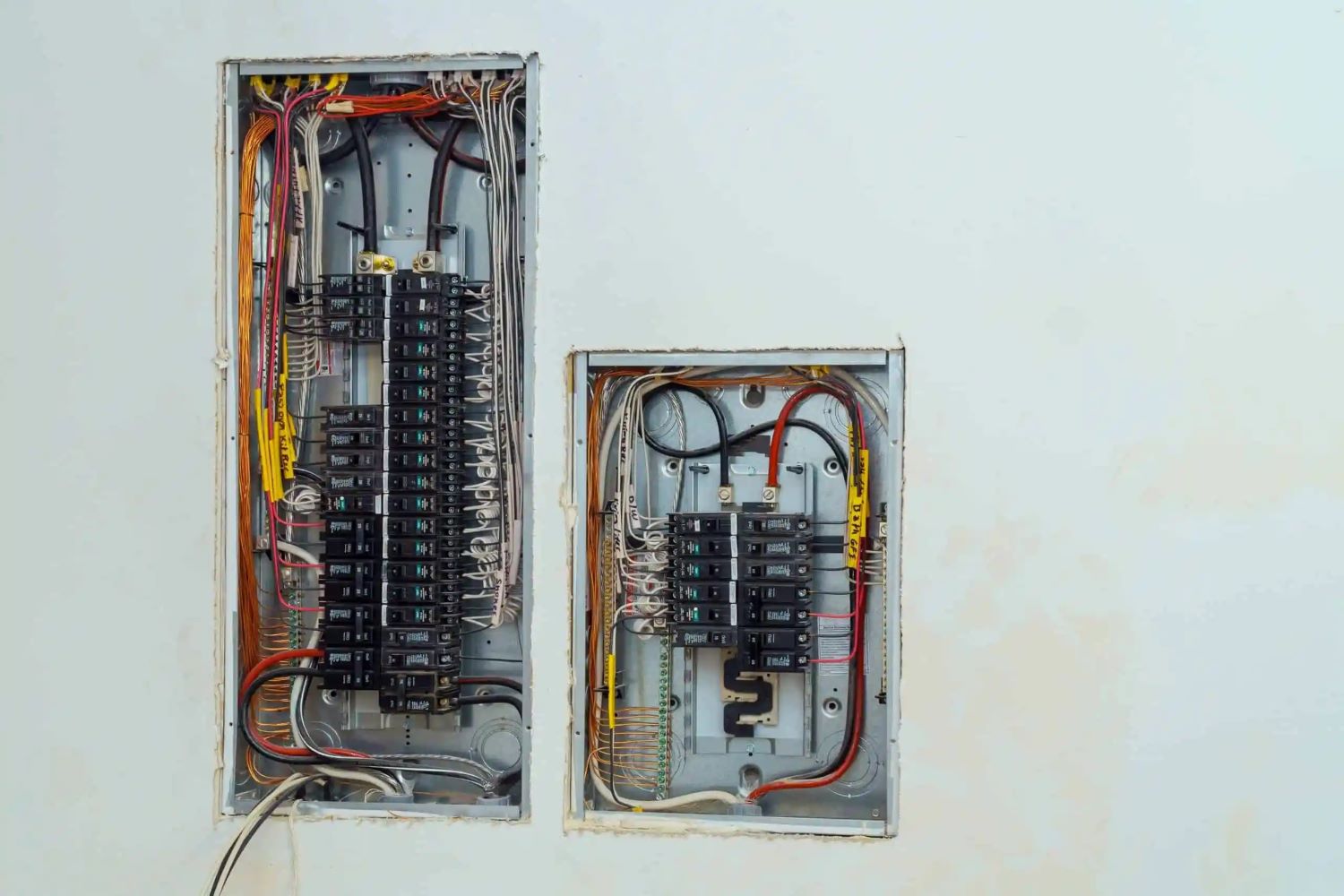

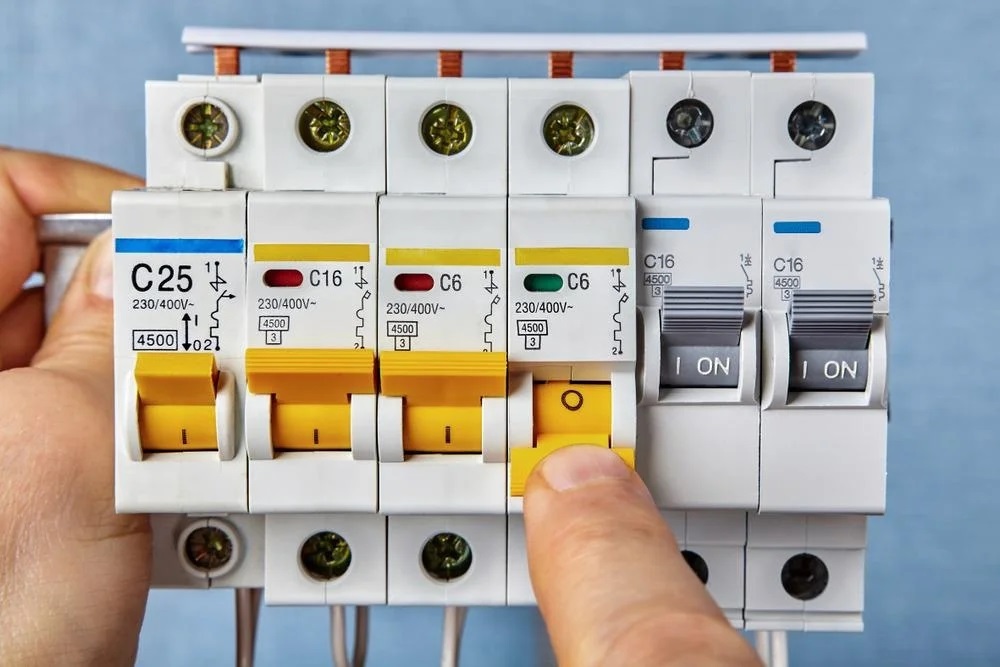
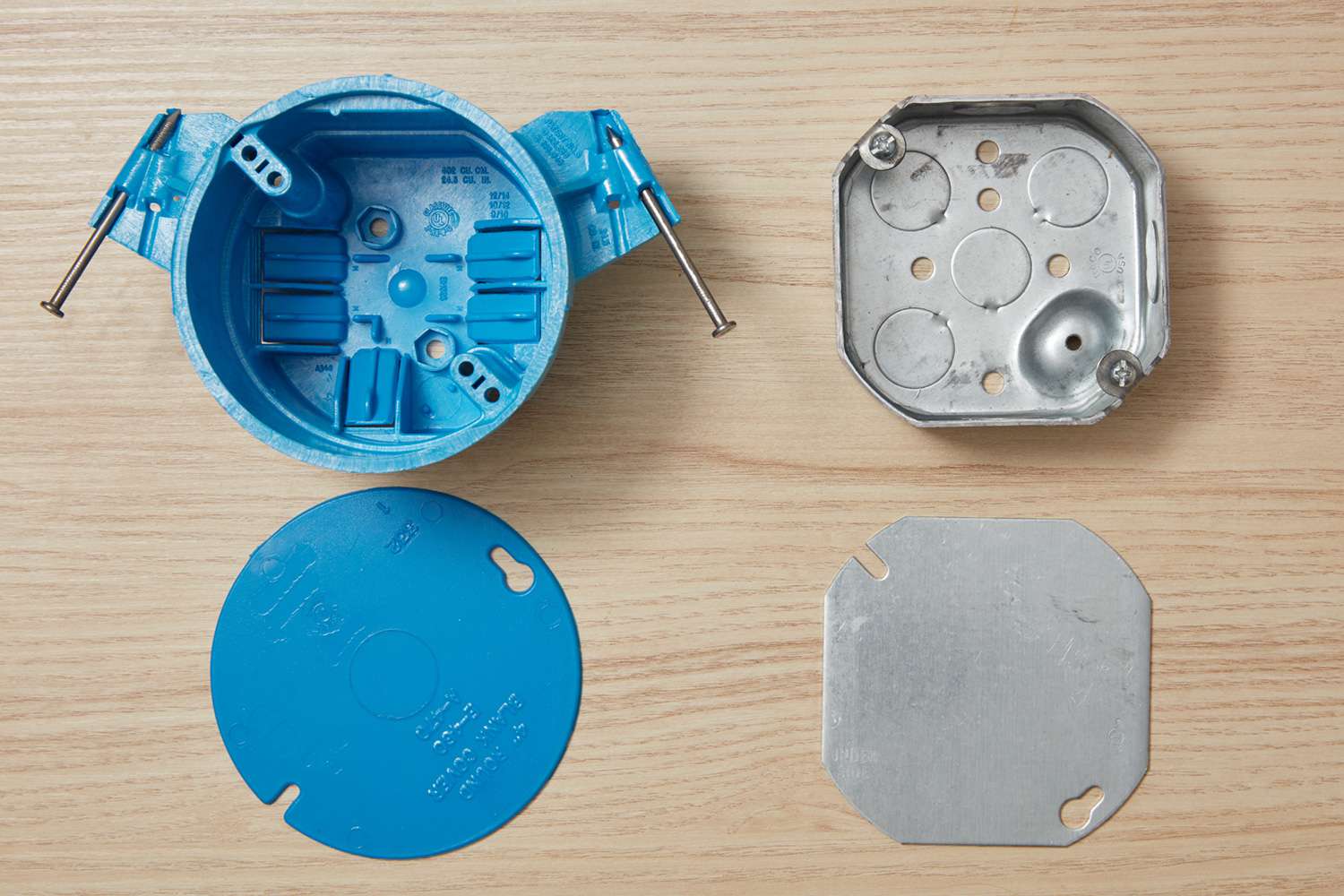

0 thoughts on “How Much Does It Cost To Replace Fuse Box With Circuit Breakers”